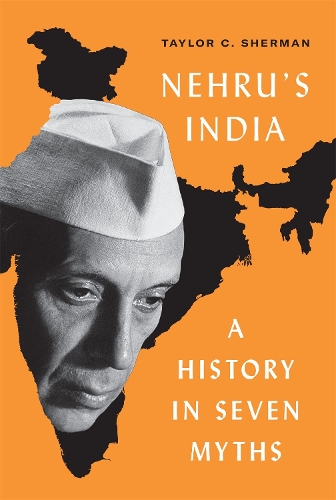
Nehru's India: A History in Seven Myths
(Hardback)
Available Formats
Publishing Details
Nehru's India: A History in Seven Myths
By (Author) Taylor C. Sherman
Princeton University Press
Princeton University Press
17th January 2023
United States
Classifications
Tertiary Education
Non Fiction
Politics and government
Political structures / systems: democracy
954.042092
Physical Properties
Hardback
304
Width 156mm, Height 235mm
Description
An iconoclastic history of the first two decades after independence in India
Nehrus India brings a provocative but nuanced set of new interpretations to the history of early independent India. Drawing from her extensive research over the past two decades, Taylor Sherman reevaluates the role of Jawaharlal Nehru, Indias first prime minister, in shaping the nation. She argues that the notion of Nehru as the architect of independent India, as well as the ideas, policies, and institutions most strongly associated with his premiershipnonalignment, secularism, socialism, democracy, the strong state, and high modernismhave lost their explanatory power. They have become myths.
Sherman examines seminal projects from the time and also introduces readers to little-known personalities and fresh case studies, including Indias continued engagement with overseas Indians, the importance of Buddhism in secular India, the transformations in industry and social life brought about by bicycles, a riotous and ultimately doomed attempt to prohibit the consumption of alcohol in Bombay, the early history of election campaign finance, and the first state-sponsored art exhibitions. The author also shines a light on underappreciated individuals, such as Apa Pant, the charismatic diplomat who influenced foreign policy from Kenya to Tibet, and Urmila Eulie Chowdhury, the rebellious architect who helped oversee the building of Chandigarh.
Tracing and critiquing developments in this formative period in Indian history, Nehrus India offers a fresh and definitive exploration of the nations early postcolonial era.
Reviews
"Nehrus India is a revisionist tour de force that shatters Nehruvian mythology. The framing device, a history in seven myths, is an elegant contrivance: Sherman offers seven compressed surveys that controvert the catchphrases of the era. Its brevity conceals an ambitious book."---Pratinav Anil, Times Literary Supplement
"Sherman has the natural flair of a storyteller. . . .a timely reappraisal of the early years of the state of India at a moment when Nehrus legacy is being fought over."---Kavita Puri, The Spectator
"Refreshing. . . . This book makes a profound intervention by re-evaluating Nehrus allegedly contentious legacies, and his role as Prime Minister."---Shaikh Mujibur Rehman, Hindustan Times
"As a scholar working on this very timeline, the book changed the ways I perceive Nehrus India. Shermans premise of a history in seven myths serves as an unconventional guide for postcolonial scholars on how to circumvent the limitations of tracing a history when the leader under examination is the only available source in most cases. Nehrus India demonstrates how to do this through alternative characterisations of the era."---Poorvi Gaur, LSE Review of Books
Author Bio
Taylor C. Sherman teaches in the Department of International History at the London School of Economics and Political Science. Her books include Muslim Belonging in Secular India and State Violence and Punishment in India.
